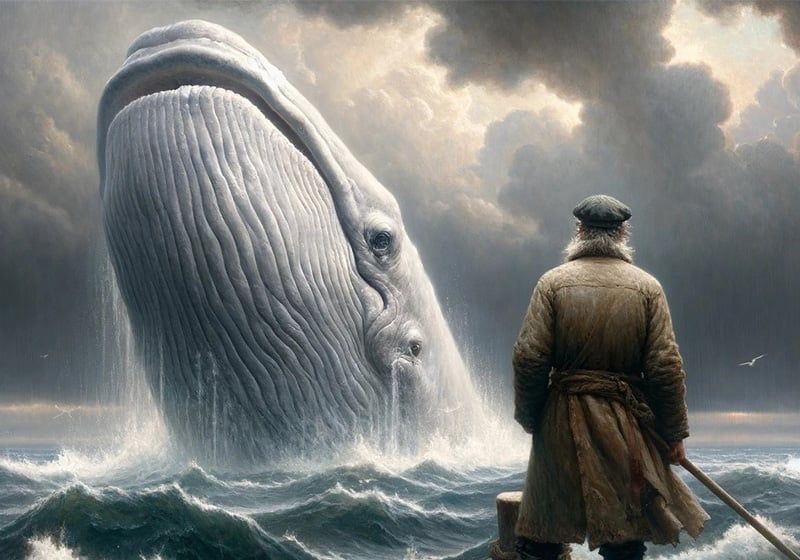

What is profound may not be popular
What is popular may not be profound
“It is better to fail in originality than to succeed in imitation.”
– Herman Melville
Herman Melville (1819–1891) American novelist, short story writer, and poet, best known for his masterpiece Moby-Dick (1851).
Starting his career as a sailor, Melville drew inspiration from his seafaring experiences for his early novels, including Typee (1846) and Omoo (1847), which brought him initial fame.
However, Moby-Dick, now considered one of the greatest works of American literature, was poorly received at the time, leading to a decline in his literary success. He later worked as a customs inspector in New York City. Melville’s work gained recognition posthumously.
Moby-Dick was a failure during Herman Melville’s lifetime primarily due to its complex narrative style, philosophical depth, and unconventional structure, which differed significantly from the popular adventure novels of the time.
Moby-Dick presented a dense, symbolic exploration of existential themes, human obsession, and the nature of good and evil, which was ahead of its time. Its dark tone, complex language, and digressions into philosophy and cetology alienated readers and critics, contributing to its commercial and critical failure.
Think about it- realistically,how many works of literature can emerge in the present era of social media dominance?
